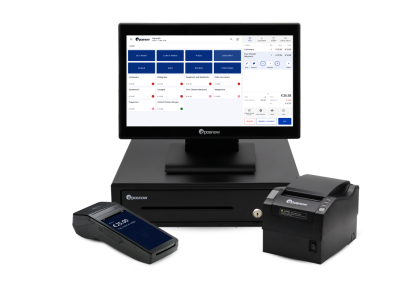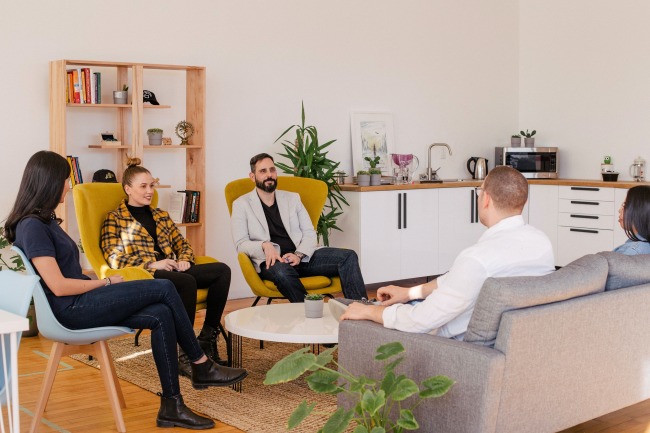3 Tips for Improving Mental Health in Hospitality
The hospitality sector employs an enormous slice of the population, with roughly 200,000 in Ireland alone [1]. With an average age of 26, front of house teams are dominated by young people finding their first jobs in the hospitality industry, waiting tables and providing a friendly face to the businesses that employ them[2].
Yet, according to Very Well Mind, the 18-25 demographic has the highest prevalence of major depressive episodes, making mental health a crucial issue for the industry[3]. Given the public nature of hospitality work, and the need to maintain a calm, cheerful exterior, it can be easy for those in hospitality to hide the many stresses of the job and for mental health to become a hidden issue.
So how can these issues be handled or even avoided? What changes can managers make that can tackle mental health in hospitality?
1. Educate, articulate, and initiate
Education in mental health achieves more than teaching people about the causes, symptoms and solutions to mental health issues. It also provides people with the language necessary to articulate the problems they and other people can face, and the inspiration to initiate conversations aimed at finding solutions.
This may sound like a lot of talk, but one of the biggest problems in mental health is communication. Finding ways to open up, and encouraging others to open up about mental health issues, is a difficult task. Mental health is personal, and hospitality is inherently public, which makes mental health policy in the industry much more difficult to get right.
However, mental health charities focus no small amount of energy on tackling mental health in the workplace. Mental Health Ireland offer excellent courses on tackling mental health crises at work and supporting colleagues and employees[4].
When management are educated on mental health, they are more confident, articulate, and better equipped to support a team and staff. Both education and conversation is meant to be shared, and when it comes to mental health, one leads to the other.
Find the perfect POS to help you run your hospitality business! Choose from a wide selection of hardware and software options for technology that will help drive you to the top!
- Manage and update products quickly with easy to use software
- Expand your business into multiple channels and integrate with a variety of online platforms for booking, online order and more
- Manage multiple locations and salespoints with multi-site management
- Keep queues short with streamlined, modifiable sales processes

2. Create policies and publicise them
The Benevolent conducted a mental health survey focused on the hospitality industry, they found the three main barriers that stopped employees from opening up about mental health were the fear of making people uncomfortable, not being close to colleagues, and not knowing how to start a conversation[5].
All three of these issues can be combatted by policy and mindset. As a business, creating a close and comfortable team might mean going on team bonding excursions, staff nights out, or even encouraging conversations between team members in staff meetings. Speaking about mental health in meetings and sharing resources on mental health can provide staff with the precedent and platform for speaking and tackling their troubles.
Managers could have a policy for addressing mental health in 1-to-1 meetings, and the business could have anonymous feedback processes for staff to raise any concerns about parts of their job that they are finding difficult to handle.
As an overview, a business’s mental health policy should provide:
- Training for staff and managers on taking care of oneself and others at work
- A selection of resources for those that are struggling to find out more about external and internal support, including helpline phone numbers to call in desperate circumstances
- A procedure for staff seeking mental health leave and a clear set of rules surrounding the process
- A list of steps the business has/is taking to support staff with wellbeing
- A policy on when, where and how staff can raise concerns about their own mental health

3. Encourage healthy, balanced living
We spend a lot of time at work, and often our mood and energy levels post-work affect what we feel capable of doing outside of our jobs. So a workplace that encourages us to live a healthy and balanced lifestyle can have an enormous, positive impact on our mental health.
Balance is not limited to any one part of work and home life but comes through considered management of diet, hobbies, working hours, social life, sleep, and self-care habits.
As an employer, you can encourage good health in these areas, for instance by providing healthy lunchtime snacks such as fruit, vegetable, and whole-grain bites. It’s also an excellent habit to encourage good levels of hydration, especially in summer.
Ensuring no member of the team works excessive hours or at an unsustainable intensity is very important. This can lead to mistakes and time-off, as well as tired staff creating a less productive and cheerful atmosphere.
Sleep can be hard to come by for hospitality workers. Late nights and early starts are industry norms and finding time to meet and care for friends and family working regular 9-5s can be difficult. Nevertheless, good sleep patterns can have fantastic mental health benefits, so talking and educating staff on sleep on a regular basis is a worthwhile habit.
A positive, cultural shift
It’s hard not to notice that conversations about mental health are becoming more common. The stigmas around opening up about mental health is becoming less powerful, so conversations with your team about personal wellbeing and difficulties are less likely to be awkward, silent affairs.
However, many workers fear the impact these conversations will have on career progression, so demonstrating openness and creating a welcoming, judgment-free atmosphere is one of the best things a workplace can do to help improve mental health among staff.
If you or anyone you know is experiencing a crisis of mental health, Mental Health Ireland has a selection of helplines you can call to receive the support you need[6].
Hospitality POS systems to give the business a lift
Epos Now’s Hospitality point of sale systems provide the hotels, restaurants, bars and beyond with a flexible, reliable and affordable business tool. The Epos Now solution helps streamline service, cut out mistakes, and provides a platform for the latest software needed to remain at the forefront of the industry:
- Personalise your front till pages to speed up sales and improve service
- Manage your business from anywhere with cloud technology and easy-to-use back-office pages
- Integrate with websites, accounting software, online ordering and more
- Make better business decisions with the help of hundreds of real-time reports
To find out more, submit your details below or get in touch with our experts and discover a POS trusted by over 40,000 businesses worldwide.
Looking to find out more about POS? Submit your details to our experts and learn what Epos Now technology can do for your business



